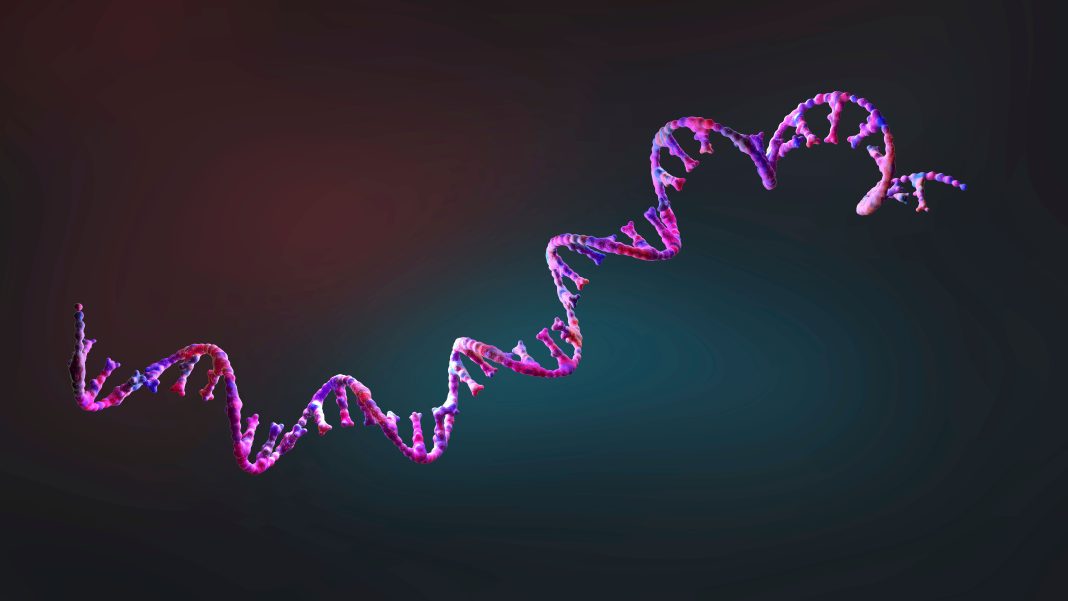Sponsored content brought to you by
Scientists at California-based Codexis started working on mRNA technology years before the COVID-19 vaccines raised awareness of this approach. Despite the success of these vaccines, enzymes used to produce the mRNA could be improved. “It’s actually really challenging to mass manufacture mRNA vaccines,” says Matt Miller, PhD, principal scientist in synthetic biology, next-generation sequencing, diagnostics, and life sciences at Codexis.
Some of the commercial enzymes used to make mRNA vaccines inherently create the problems. “The off-the-shelf, wild-type enzymes are not fit for large-scale commercial production,” says Jason Hein, director, business development at Codexis. “An engineered enzyme addresses some of the challenges by efficiently adding a capping analog to the five-prime end of the mRNA, increasing mRNA yield and purity, and reduces double-stranded RNA impurities.” A cap structure, for example, stabilizes mRNA, which is required to translate the intended proteins. Nonetheless, adding the cap can be complex and expensive.
Scientists at Codexis work on improving the tools needed to make the most effective mRNA-based therapies as efficiently as possible.
Aiming at efficiency
In a partnership with North Carolina–based Precision Biosciences, Codexis demonstrated that its Codex® HiCap RNA Polymerase improves the efficiency of mRNA production. Plus, products produced with this enzyme through in vitro transcription contain reduced levels of double-stranded RNA (dsRNA), which triggers unwanted immunogenic effects.
The economical manufacturing of mRNA-based therapies depends on efficient bioprocessing. Capping the mRNA creates a key opportunity to improve efficiency and potentially reduce the use of reagents.
“We evolved our Codex® HiCap RNA polymerase for selective incorporation of the cap at initiation,” Miller says. “That allows us to put in less of that cap molecule to get the same amount of capping. Alternatively, a manufacturer can stay at the same cap concentration and get higher capping. Those capabilities are used to control the cost of the process and also the reliability.”
Additionally, generating less ds-mRNA from the start simplifies bioprocessing and reduces cost. “Typically, wild-type polymerases are used to make mRNA therapeutics, and in a lot of cases, double-stranded RNA must be removed through expensive steps,” Miller explains. “So, we really addressed that problem with our RNA polymerase.”
Benefits for manufacturers
Bioprocessors who work with mRNA can already benefit from engineered enzymes. “Codex® HiCap RNA Polymerase is available on the market and is being used by a number of companies that are in preclinical and Phase I trials,” Hein says. “The customers that we think are going to benefit the most are the industrial manufacturers of mRNA therapeutics.”
An engineered enzyme helps mRNA bioprocessors in many ways. “It allows a manufacturer to reduce the amount of downstream processing and handling steps and ultimately increases the yield, which is a return on investment,” Hein explains.
As Miller emphasizes, downstream processing reduces the yield. “There’s a loss of the actual molecule itself,” he says. “So, you can minimize that with a smaller number of steps, and that’s a significant benefit.”
Solving more problems
As the demand for mRNA-based therapeutics continues to grow, Codexis scientists will face more challenges. “As the market moves toward longer templates and mRNA constructs, like self-amplifying mRNA, they’re trying to maximize the yield so that they have the best economics in their process,” Miller says. “Plus, companies will use mRNA-based therapies to explore other indications, like heart disease, or cancer, and annual vaccines, like flu.”
Cell and gene therapy can also make use of mRNA. All along, companies will try “to reduce the number of process steps, not only to minimize loss of the product from impurities through multiple purifications, but also because those process steps add time, complexity, and a chance for contamination,” Miller explains.
In the future, manufacturers will expect even more from mRNA bioprocessing and products. As Miller notes, “Many of an mRNA manufacturer’s needs can be addressed through enzyme engineering and evolution—tailoring performance to address challenges as they arise.”
Learn more about Codexis engineered enzymes for mRNA synthesis





